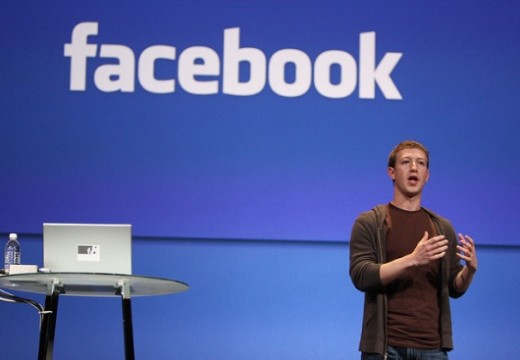 According to some religious myths it is the “word of god” that created “the heaven and the earth”. Ironically, there may be some truth to the idea that “words” have so much power.
According to some religious myths it is the “word of god” that created “the heaven and the earth”. Ironically, there may be some truth to the idea that “words” have so much power.
There is a source code to the universe. Science is the process we use to reverse engineer it. Every new piece of the source code of the universe that we discover gives us that much more power over the universe. We can modify the source code to suit our needs and desires and build new programs to interface with it.
Raymond Kurzweil sometimes says that all technology will ultimately become “information technology”. This is because it is literally information which is the interface between ourselves and the universe. Everything that happens in the universe and everything that exists we understand only in terms of information within our minds and intricate connections between various pieces of it.
When we create a device of some kind we follow a specific blueprint; information which leads us through an exact set of actions that leads to the construction of the desired device. When we operate a computer we are initiating countless of instructions that tell it what to do in order to accomplish what we want it to.
Perhaps the best illustration of this concept are the upcoming Brain Computer Interfaces. Just think of something in your mind and the computer interprets it into equivalent set of instructions that it can understand. Brain Computer Interfaces (BCIs) are directly bridging the expanse of complex information contained within our minds and the rest of the world. For the first times we are able to manipulate the world around us by thought alone.
Since computers control other machines which manipulate matter itself we can through this process manipulate matter with our minds. As the computers get more powerful, and robotic machines more sophisticated, especially in the realm of nano-machines, we gain more and more real power over the matter and energy that surrounds us. One day a thought alone may make an object transform into whatever you wish it to be, or disappear.
This convergence of the next generation of advanced technologies makes it possible to actually realize what is typically considered least realizable: fantasy worlds. I don’t mean just science fiction, since science fiction tends to keep some ground to reality through scientific concepts. I’m talking about pure fantasy, the world of elves and vampires, the world of magical spells, the world in which all your wildest dreams can come true. Here are a few examples of fantasy powers that could eventually become realized through technology, based on the insights we already have.
1. Making objects transform, levitate or disappear, on command.
You could become like a mage capable of lifting big rocks or rearranging furniture at the thought alone. You don’t necessarily even have to say a magical spell. You could even transform that rock into the perfect statue which you just imagined within your mind.
We already have insights into what could make such powers real. Nanotechnology, which humans are rapidly mastering, may allow us to build tiny machines called nanobots that can rearrange atoms into any kinds of structures we desire. Sufficiently advanced nanotechnology may thus allow for nanobots who could enter the molecular structure of a rock, move the atoms around and thus turn it into something else.
You could control the nanobots wirelessly through a brain computer interface (BCI) and a computer both of which can be embedded within your skull. The BCI interprets your thoughts into computer instructions which are then translated by the computer into instructions that the nanobots can receive and act upon. All of this can happen within seconds. You think of a rock transforming into a beautiful chair, and nanobots immediately fulfill your wish.
Levitation or disappearance can be achieved the same way. Levitation is simply a result of properties of an object which are the result of its molecular structure. For example the ground upon which it levitates as well as the bottom of a levitating object may instantly be turned into magnetic materials of opposing charges creating a repelling magnetic force between the two.
Disappearance may simply be a result of completely dismantling the molecular structures into a random stream of atoms or turning it into the molecular structure of oxygen, nitrogen etc.
Everything you see around you is consisted of atoms arranged into specific complex structures. The advent of nanobots which can manipulate those structures at will essentially turn all of what you see around you into something akin to objects in a virtual world. Words, mental words even, will be all you need to utter for thy will to be done.
2. Elves and vampires
A quick trick to this is still nanotechnology, simply because atoms are fundamental to everything. You could turn yourself into a vampire by altering the molecular structure of parts of your body to give you those menacing teeth and a lust for blood, as well as the stomach that can easily process it into healthy nutrition.
But the same thing could be accomplished genetically. Humans have already managed to create life in a laboratory through a process which is essentially akin to programming organic beings much the way you can program a computer, except in this case it is the hardware which “runs” on software because an organic life form transforms into what its DNA says it should be.
Therefore reprogramming of your DNA may be enough to turn you into a vampire, an elve or any other kind of creature you might imagine and have the correct DNA code from. It is conceivable that you wont have to know the exact code though, if the computer software you use is sophisticated enough to translate the properties you imagine into appropriate genetic code.
3. Superpowers: flying, cloaking, throwing lightning bolts or fireballs
This is likely going to be a mixture of the above two: genetics/genomics and nanobots. In order to fly you might have to reprogram yourself so as to grow wings or you would have to instruct the swarm of nanobots to lift you up with a process similar to the one that may make other objects levitate (as described above). Alternatively, of course, you could just instruct them to manifest thrusters on your boots, backs and arms that will have you flying like the Iron Man. You might want to manifest a good armor too, or else you might find the wind, pressure (and icing if you go too high) to be quite punishing.
Nanobots could also accomplish cloaking by constructing a thin layer of molecules which divert light around you, but this is also something that could be accomplished with genetic reprogramming. Your skin could have structures in it which can divert light when you desire them to.
Throwing lightning bolts is a matter of creating extremely opposite charges between the target and your hands (while creating shielding that would prevent yourself from getting electrocuted by the resulting current) which can be accomplished by nanobots restructuring the molecules within the target and your hands.
Fireballs could be created by having a swarm of nanobots transform the air it travels through into a burning material of some kind.
Fantasy as Science Fiction
The above examples and explanations probably sound incredibly fantastic and perhaps even ridiculous. They are also quite rough, but the intent wasn’t to explain every detail about how exactly could we gain such powers with nanotechnology and genomics. If I had that knowledge we would already have them! But that’s precisely what I want to illustrate, that all of the above is only a matter of finding and essentially executing the right code and the right procedure.
Science is the process of accumulating knowledge and understanding about the universe we are living in, and technology has always been about applying gained understanding in practical ways. The two have always followed each other. Science gives us information, the code, which we then essentially “execute” upon the world through technology.
Perhaps nothing demonstrates this better than nanotechnology, which is actually slowly penetrating every field of technology there is. It is scientifically understood that everything ultimately comes down to a specific arrangement of molecules and a specific set of micro processes. Nanotechnology is beginning to meddle with those molecular structures and those processes and has already accomplished a number of applications which may have previously been considered “magical”, such as creating wood that doesn’t burn, unbreakable strong materials (nanotubes), and so on.
These kinds of technologies bring science fiction and fantasy genres closer together. Things which were previously so far out that not even science fiction writers would dream of them, and would instead relegate to the boundless realm of pure fantasy, are now coming into view as actually quite possible.
This is why I think the genre of fantasy can in a sense be seen as the new kind of science fiction, except it typically doesn’t offer scientifically sounding explanations. It can no longer be viewed only as an imaginative depiction of far out fantasy lands, but as a prediction of potential future powers.
Misuses of technology
Finally, I would like to note that many of the above fantastic powers would actually represent terrible uses of technology. I in no way wish for people in the future to become blood lusting vampires, or that we start routinely shooting each other with fireballs, or turning each other into rocks or rodents.
I mentioned those powers solely because this is what we typically see in fantasy movies and games, not because I want these powers to actually be used even when they do become feasible.
You might ask how will we defend from those who would be crazy or sick enough to use these kinds of powers against others. I would say that everything that can be done can also be undone. In all level playing fields there is a possibility for neutralization. Certainly if you posses a swarm of nanobots obeying your thoughts and attack someone with no such nanobots he would be easily victimized. But if you face someone with a swarm of nanobots of his own this becomes an even playing field. His nanobots can create structures which neutralize the power of yours and vice versa.
This also means it is possible to build materials which could conceivably be impenetrable to many types of nanobots, shields which are constructed of nanobots themselves therefore intelligently dismantling molecular structures that may harm you.
So just as we have security precautions in the virtual worlds and on the Internet we may have security precautions in a world so easily transformable by our nanobots. The world will not necessarily come to an end.
How big a risk it will be, however, does in big part depend on prevalent mentality of human beings. It would be gravely sad if by the time we evolve so much technological power we fail to evolve mentally. If our mode of operation still continues to be this humano-destructive urge to control each other with violence, then perhaps we don’t even deserve to survive the misuse of our own technology.
Image by Bohman.




Jake
As amazing as this sounds, i honestly doubt that this will be the future. Can you please post a source?
Daniel Memenode
And I’m sorry that your comment has absolutely no substance at all. 🙂
Could you elaborate on your feeling?